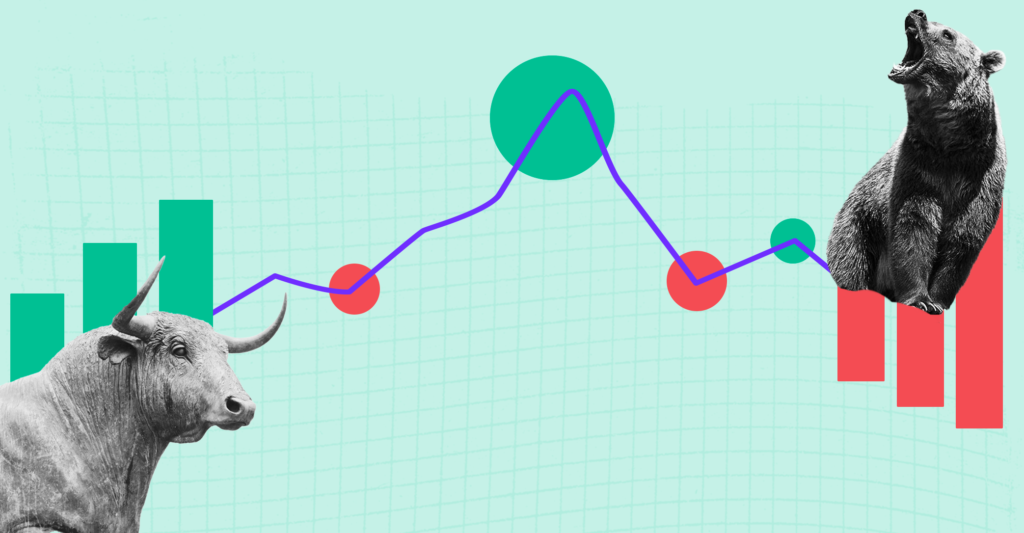Last Updated on May 24, 2022 by Aradhana Gotur
On Monday this week, Hong Kong equities witnessed a major sell-off during the Asia trading session. Hang Seng, the benchmark index, plummeted 4% mainly because China’s real estate giant Evergrande Group is on the verge of defaulting. They are a Fortune 500 company having over $300 bn in liabilities that became due for payment starting this week. Listed in Hong Kong, Evergrande itself has tumbled 16.4% this week and 84.5% in the year so far.
US stocks also entered the week deep in red. S&P 500 fell 1.7% and Dow 600 points. The tech-heavy Nasdaq Composite also dropped 2.2%. A similar scene played out in the Japanese market, where indices Topix and Nikkei 225 shed over 1.5% each. Back home, Dalal Street tumbled, dragging domestic steel stocks along.
Table of Contents
Travelling back in time – Lehman Brothers
Back in 2008, America had witnessed a similar crisis with realty giant Lehman Brothers declaring bankruptcy. Forgetting the resultant global financial crisis of 2008 is hard, right? Is a similar situation around the corner? Well, analysts expect not. Some say that 2008 was a long, long time and also that a lot has changed since then. And so both the situations don’t run parallelly. But this doesn’t negate the possibility of a spillover of the contagion.
Chinese regulatory crackdown in its Edtech sectors
Earlier this year, the Chinese tech and education sectors were tied down with regulatory restrictions, whose impact reverberated across the globe. Companies such as Didi, Tencent, and Alibaba faced regulatory challenges due to reasons including data privacy concerns of users and prohibition of EdTech companies from raising money in overseas markets.
Global investment in Chinese stocks and bonds shot 40% to over $800 bn through the last year. Around the time of the Chinese Edtech crackdown, the country’s weightage in FTSE emerging markets ETF was 40%. And although Shanghai Composite, a broader index, was down 2%, Tech and Education related stocks plunged ~90%.
How did this impact Indian markets?
Although of Chinese origin, these technology companies’ top investors are Western and not domestic. For instance, Naspers Limited, a South African MNC and the Vanguard Group, Inc., a US company, are top international investors in Tencent. And Goldman Sachs International is one of the major investors in Alibaba. These investors have also poured their funds into Indian equity markets.
A defence mechanism
The natural instinct of such investors incurring significant losses in any country, be it China or others, would be to limit their risk exposure in other countries.
On the contrary
India and the US, saw a generous inflow of funds as the big investors redirected their funds from China to emerging markets. However, experts say that this is a situational advantage for India as it wouldn’t last in the long run.
Coming back to the Evergrande crisis
The real estate sector accounts for close to 29% of the Chinese economy. Evergrande Group is the second-largest property developer in China. Failure to repay the liabilities could cause repercussions for both China and the global markets. A default could either call the Chinese government to rescue Evergrande or would need liquidation of the company’s assets. The latter could have a ripple effect impacting both banking and non-banking institutions having exposure in Evergrande.
The real estate sector accounts for ~29% of the Chinese economy. Evergrande Group is the 2nd largest property developer in the country, and owes $300 bn. Failure to repay could cause repercussions for both China and global markets! Click To TweetIs the company not too big to fail?
But will the Chinese government bail out the ailing developer? Chinese authorities have already rejected Evergrande’s plea for a bailout once. However, the significant global impact in case of the company’s default has prompted the policymakers to step in.
Just how big is Evergrande?
Evergrande has 1.5 mn residential units that are sold but not yet completed. Besides having a presence in the real estate sector, Evergrande also has an auto unit, health food vertical, online media platform, and healthcare projects.
As mentioned, the company’s debt problem is just as big. As of now, Evergrande owes over $300 bn to investors, suppliers, and lenders. This accounts for ~6.5% of the Chinese property segment’s total liability.
Evergrande’s debt problem is as big as the empire itself. They owe over $300 bn to various stakeholders, accounting for ~6.5% of the Chinese property segment’s total liability! Click To TweetAs per UBS, Evergrande’s liabilities could involve over 130 banking and 120 non-banking institutions. The company’s debt is ~2-3% of Chinese bank’s core Tier 1 capital – around 18.5 trillion as of Q2.
Are Indian markets in trouble?
The real impact of the Evergrande crisis is yet to be seen. Indian benchmark indices Nifty and Sensex fell on this account on Monday, they seemed to have recovered to an extent on Tuesday.
But a slowdown in Chinese real estate could also hamper the growth in the global economy including ours. Besides, it would also impact the prices of industrial commodities, which is why Indian sectors such as steel, metals, and iron ore could take a hit if the Chinese government doesn’t rescue Evergrande on time.
The Chinese government could also depreciate Yuan to support its economy by levelling up exports, intensifying competition in Indian sectors such as textiles, chemicals, tyres, and garments.
After rallying sharply so far this year, metal and chemical stocks slowed down with the change in the US Federal Reserve’s stance. Overall markets have also been facing headwinds given the possibility that the Fed could initiate withdrawing the quantitative easing programme toward the year-end. The Evergrande issue has only escalated the woes.
The bright side
Although it can’t be said for sure, part of the exodus of investors from the Chinese market could fly to India. Think on the lines of China plus one strategy. But a clear picture is far from visible as of now. However, it is best to be cautious because the market is generously valued and is thus prone to corrections.
On the contrary, the earlier regulatory crackdown in China coupled with the recent Evergrande crisis could attract increased funds in the Indian market in the medium to long term. But a clear picture is far from visible as of now.
- Top Large Cap Funds 2025: Discover Blue Chip Performers - Mar 27, 2025
- Gilt Funds in India: Features, Meaning, and Advantages - Mar 13, 2025
- Best Index Funds in India 2025: Top Performing Mutual Funds - Mar 13, 2025




